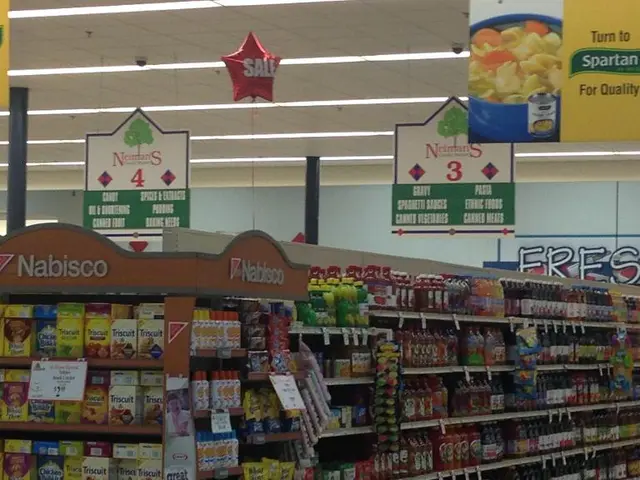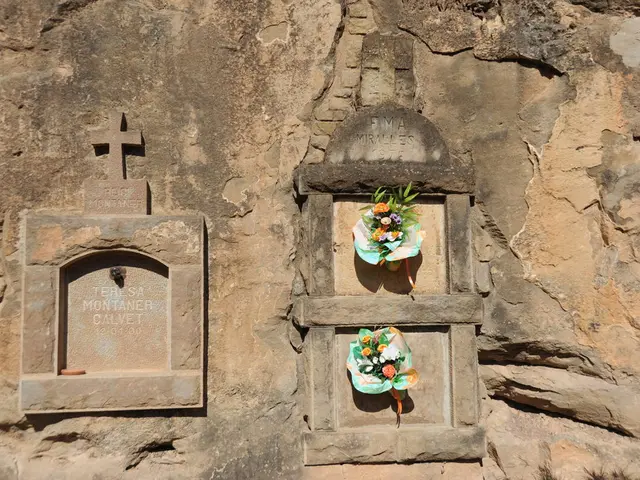Controversial, explicit "ParkTok" movement purportedly seeks to highlight budget reductions affecting national parks
In recent weeks, TikTok has seen a viral trend pairing sexually suggestive content with videos of America's breathtaking national parks. This approach, often referred to as the US National Parks "thirst trap showdown," utilizes humor, flirtation, and provocative poses to grab viewers' attention and engage them, all while highlighted against stunning park landscapes.
The trend's prime example can be found in a video from an unofficial account showcasing the Grand Canyon National Park and other Arizona nature sites. This video, along with many others, serves a dual purpose: entertainment and raising awareness about the potential threats to US public lands amid the Trump administration's efforts to reduce national parks staffing and designate more lands for drilling, mining, and logging.
Some unofficial accounts, such as the popular @joshuatreenp with over 250,000 followers, encourage viewers to donate to organizations like the National Park Foundation or contact their local representatives to advocate for protecting public lands. Kim Tanner, who manages the account, noted that this strategy effectively captures attention and, hopefully, educates viewers subtly.
ParkTok, the name given to this trend, initially started last autumn as a way for nature enthusiasts to share their love for local parks. However, in February, the Trump administration implemented widespread workforce reductions, prompting national parks to announce closures, pause reservations, and limit hours. Consequently, several ParkTok accounts joined forces, aiming to use their platform to promote the protection of public lands.
While the aim of each video may vary, many have racked up hundreds of thousands of views, like Phoebe's post showcasing Multnomah Falls set to the explicit song "Fat Juicy & Wet." Not all videos are sexually suggestive, with one video from an unofficial Bryce Canyon National Park account garnering over 1 million views by commenting on government and financial issues.
Account holders, such as Phoebe, maintain their ParkTok accounts as hobbies to raise awareness for the places they cherish. While they have full-time jobs and do not profit from the accounts, they have pledged to donate any future earnings from TikTok's creator fund to the causes they support. Tanner believes that ParkTok can bridge the political divide, highlighting that many people appreciate and care about national parks and forests.
Despite the secondary purpose of raising awareness about public lands, neither the National Park Service nor the National Park Foundation has provided comments.
This trend demonstrates the potential for creative storytelling to combine entertainment with environmental advocacy on social media platforms, reaching a younger audience and making conservation topics more accessible and engaging.
- The trend on TikTok, known as ParkTok, initially started as a way for nature enthusiasts to share their love for local parks, but it has since evolved to include content that raises awareness about potential threats to US public lands.
- Some ParkTok account holders, like Kim Tanner who manages the popular @joshuatreenp account, encourage viewers to donate to organizations like the National Park Foundation or contact their local representatives to advocate for protecting public lands.
- While the Trump administration's policy and legislation focused on reducing national parks staffing and designating more lands for drilling, mining, and logging, ParkTok accounts have joined forces to promote the protection of public lands.
- The trend on TikTok, ParkTok, demonstrates the potential for combining entertainment with environmental advocacy, reaching a younger audience and making conservation topics more accessible and engaging. Additionally, it hints at the possibility of using creative storytelling to bridge the political divide on important issues like the preservation of public lands.








